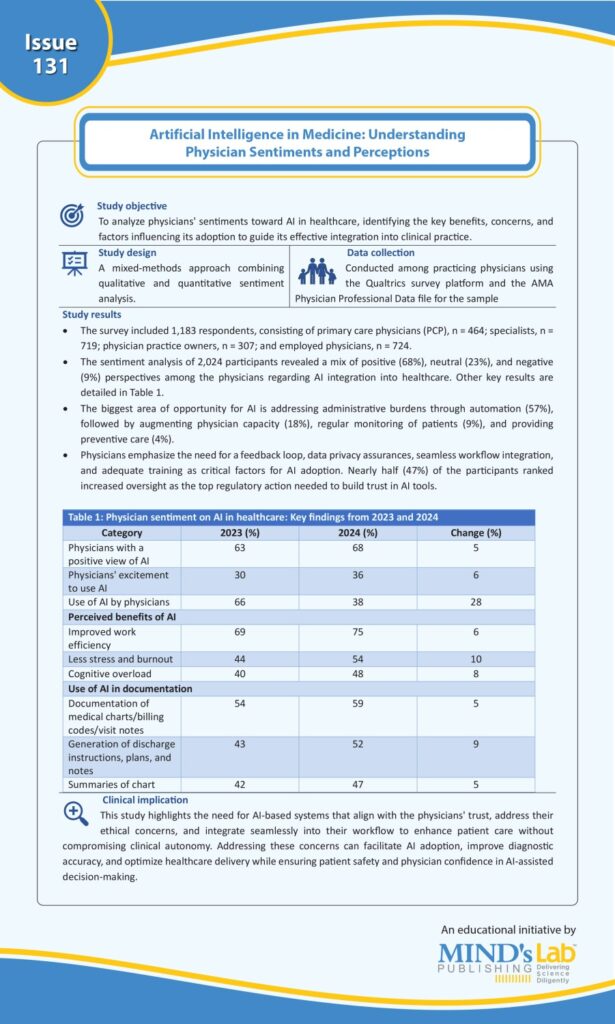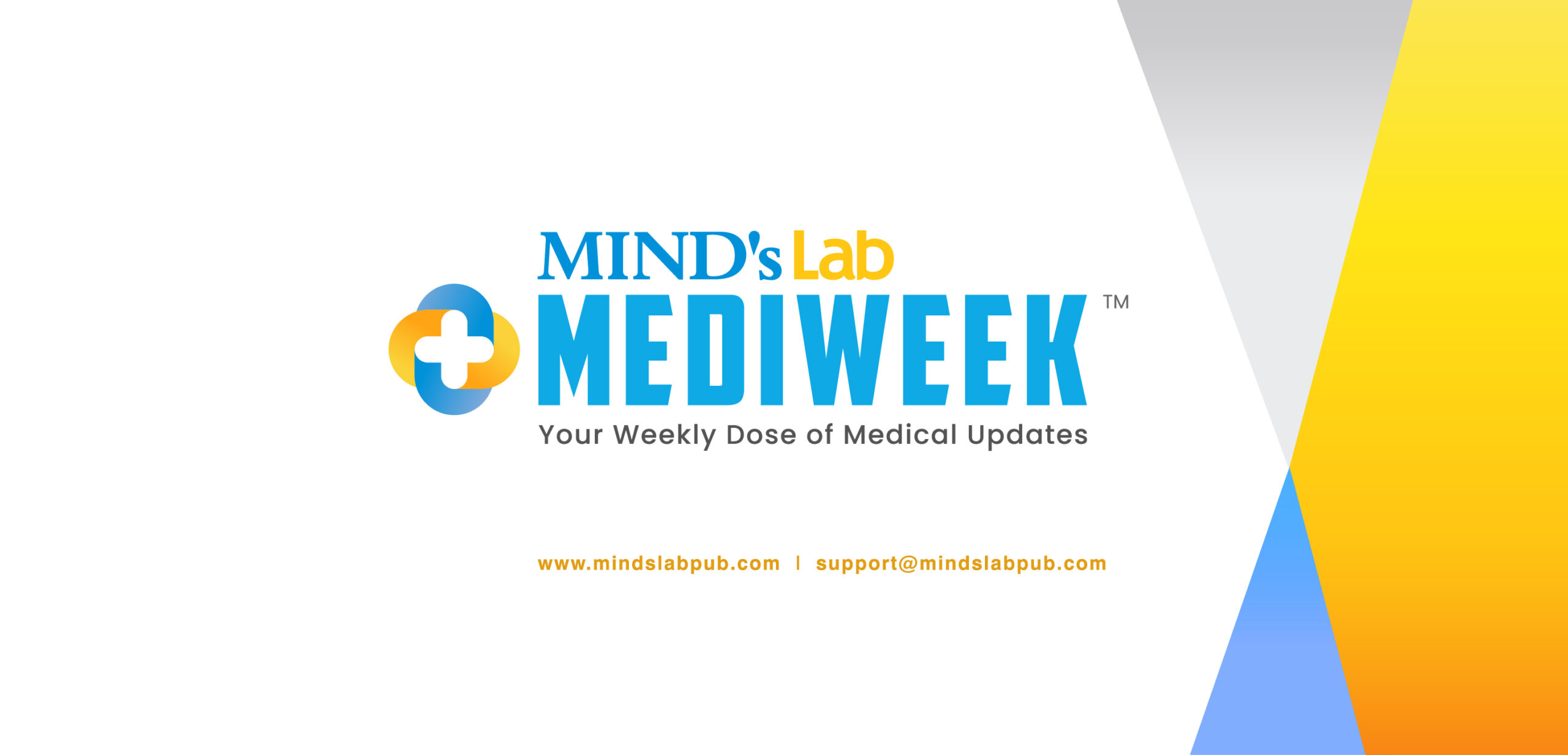
Artificial Intelligence (AI) is increasingly influencing the landscape of modern healthcare, offering promising advancements in diagnostics, treatment planning, and administrative efficiency. However, successful integration of AI into medical practice depends not only on the technological advancements but also on the perceptions and acceptance of healthcare professionals. Physicians, as key stakeholders, play a crucial role in determining the extent to which AI can be effectively utilized in clinical settings.
The integration of AI into healthcare has witnessed exponential growth, with applications spanning from image recognition and predictive analytics to robotic-assisted surgeries and personalized medicine. AI-driven tools have demonstrated remarkable potential in improving diagnostic precision, automating routine tasks, and augmenting clinical decision-making. Despite these advancements, the perception of AI among physicians remains diverse, shaped by factors such as experience, specialty, and familiarity with emerging technologies.
Previous studies have outlined that fact that many physicians recognize the potential of AI to enhance efficiency and reduce workload; however, there is a lingering skepticism regarding its ability to replace human judgment. Concerns about algorithmic bias, data privacy, regulatory challenges, and the erosion of clinical autonomy further complicate the adoption of AI. Additionally, ethical considerations surrounding AI-driven decision-making raise questions about accountability and patient safety.
This study by the American Medical Association (AMA) aims to analyze the physician sentiment toward AI in healthcare, identifying key themes, concerns, and expectations that shape its future role in medicine. This study explored the physician sentiments through qualitative and quantitative analysis, with an objectove to provide a nuanced understanding of the attitudes that may influence adoption of AI. Identifying the key drivers and barriers to acceptance of AI can facilitate the development of AI solutions that align with clinical needs and ethical standards, ultimately fostering a collaborative approach to AI-human synergy in healthcare.
Understanding physicians’ attitudes toward AI is essential for addressing the barriers to adoption and fostering trust in AI-driven solutions. While AI presents opportunities to enhance diagnostic accuracy, optimize workflow, and reduce clinician burnout, concerns remain regarding its reliability, ethical implications, and potential impact on the physician-patient relationship.

(Source: AMA Augmented Intelligence Research. Physician sentiments around the use of AI in health care: Motivations, opportunities, risks, and use cases Shifts from 2023 to 2024 [Internet]. Feb 2025. Available at: https://www.ama-assn.org/system/files/physician-ai-sentiment-report.pdf)
